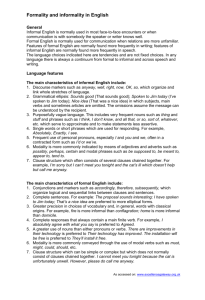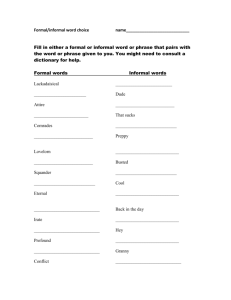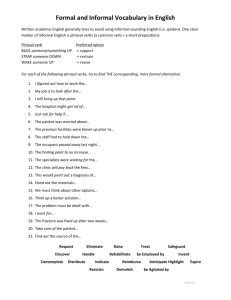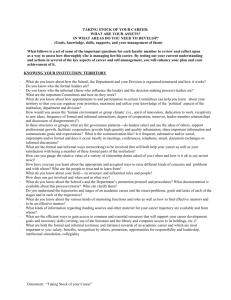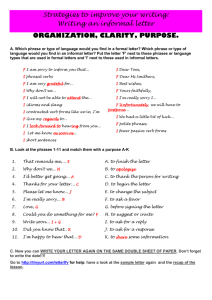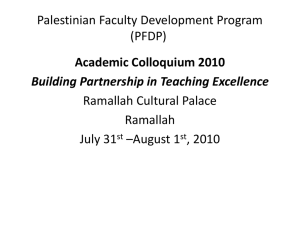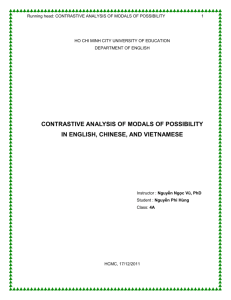Lesformulier Grammar Orals jaar 2
advertisement
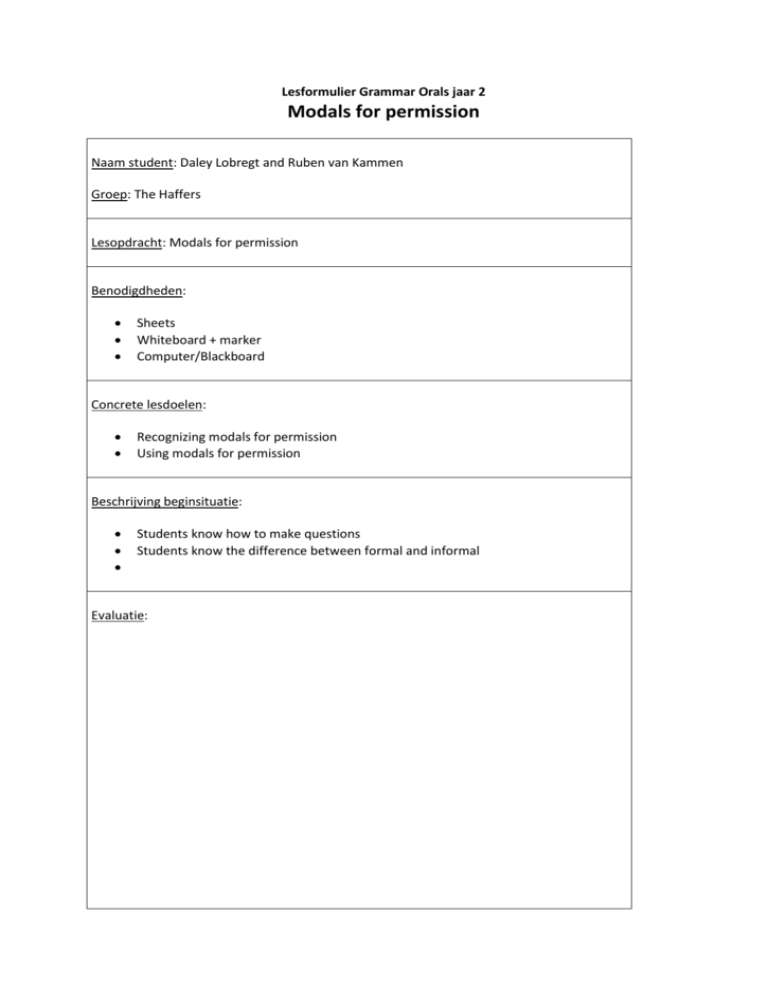
Lesformulier Grammar Orals jaar 2 Modals for permission Naam student: Daley Lobregt and Ruben van Kammen Groep: The Haffers Lesopdracht: Modals for permission Benodigdheden: Sheets Whiteboard + marker Computer/Blackboard Concrete lesdoelen: Recognizing modals for permission Using modals for permission Beschrijving beginsituatie: Students know how to make questions Students know the difference between formal and informal Evaluatie: Leerinhoud: INTRO Oh oh…you just woke up and you find out that you are way too late for class. Also today is the day that the teacher will explain important and helpful theory about your upcoming exams. You have to ask the teacher politely to enter even though you are quite late. If you do this incorrectly he might deny you access to the classroom and you will miss the important lesson. Students make sentences, when everyone is done, the teacher points someone out to read their sentences aloud. The other students are asked whether they had other sentences and share some with the group. (not every student has to be asked individually because of the little time there is) What are modals for permission Let’s have a look at these four verbs. These are most used when speaking about permission. CAN You can go now, if you want. COULD Her father said she could use the car. MAY Excuse me, may I ask you something? BE ALLOWED TO It’s not allowed to smoke in this building. It depends on the formality of the situation which verb to use When the situation is formal, it requires you to use a formal modal for permission. The same goes for informal situations. When to use When to use what verb, differs per situation. There are four ways to talk about permission: 1. Asking permission 2. Giving permission 3. Having permission 4. Whether something is permitted or not 1. Asking permission When you want someone to give you permission to do something, you use these verbs: CAN - informal - Can I ask a question, please? - Can we go home now? COULD - formal - Could I ask a question, please? - Could we go home now? MAY - formal - May I ask a question, please? - May we go home now? 2. Giving permission When you want to give permission to somebody to do something, you use these verbs: CAN - informal - You can come back tomorrow. - You can borrow my pen. MAY - formal - You may come back tomorrow. - You may borrow my pen. 3. Having permission When you want to talk about having permission to do something, you use these verbs: CAN - informal - We can go out tonight. - Students can travel for free MAY - formal - We may go out tonight. - Students may travel for free. 4. Whether something is permitted or not When you want to talk about things which are allowed or not, you use these verbs: CAN - informal - You can’t smoke in here, lad. BE ALLOWED TO - formal - It is not allowed to smoke in here, sir. Exception However these rules are easy, there is one exception which you have to bare in mind. When speaking about permission in future and perfect forms you must use BE ALLOWED TO - You will not be allowed to bring your notes to the exam Future form= will not be allowed to - He has never been allowed to travel alone Perfect form= has never been allowed to Exercise 1. Miss, ………. I leave class early as I’ve got an interview? 2. Hi Jeff, …….. I call you back? I’m having dinner at the moment. 3. My car just broke down. ………. I use your phone, please? 4. My mom said I …….. use her computer today. 5. Dad, …… I tell Jim what we bought him? 6. You ……….. feed the animals in the zoo when you’re there tomorrow. 1. 2. 3. 4. 5. 6. Could (may) – use formal for speaking to a teacher Can – Jeff comes across as an informal friend May – use formal for asking a favour from someone Can (can’t) – mom is an informal person Can – dad is an informal person Are not allowed to – future form (marker=tomorrow) Summary To summarize everything we’ve discussed: • It depends on the formality of the situation which verb to use • 4 ways to use modals for permission informal/formal: 1. Asking permission can/could/may 2. Giving permission can/may 3. Having permission can/may 4. Whether something is permitted or not can/be allowed to • Exception Permission in future & perfect forms be allowed to Questions?


